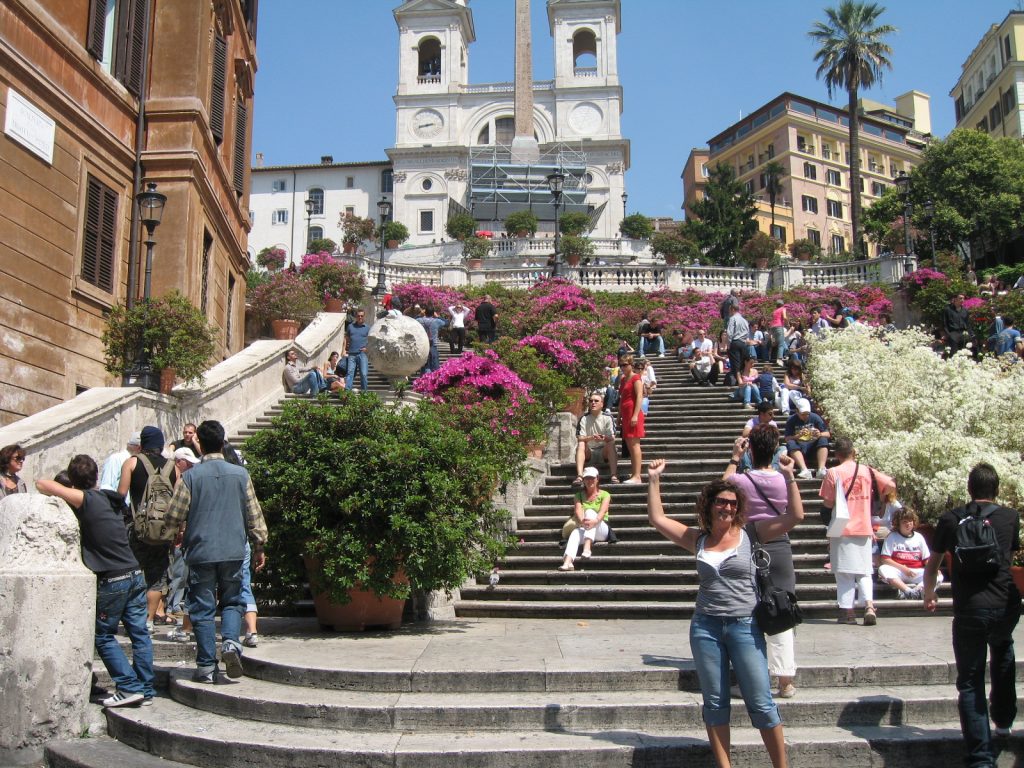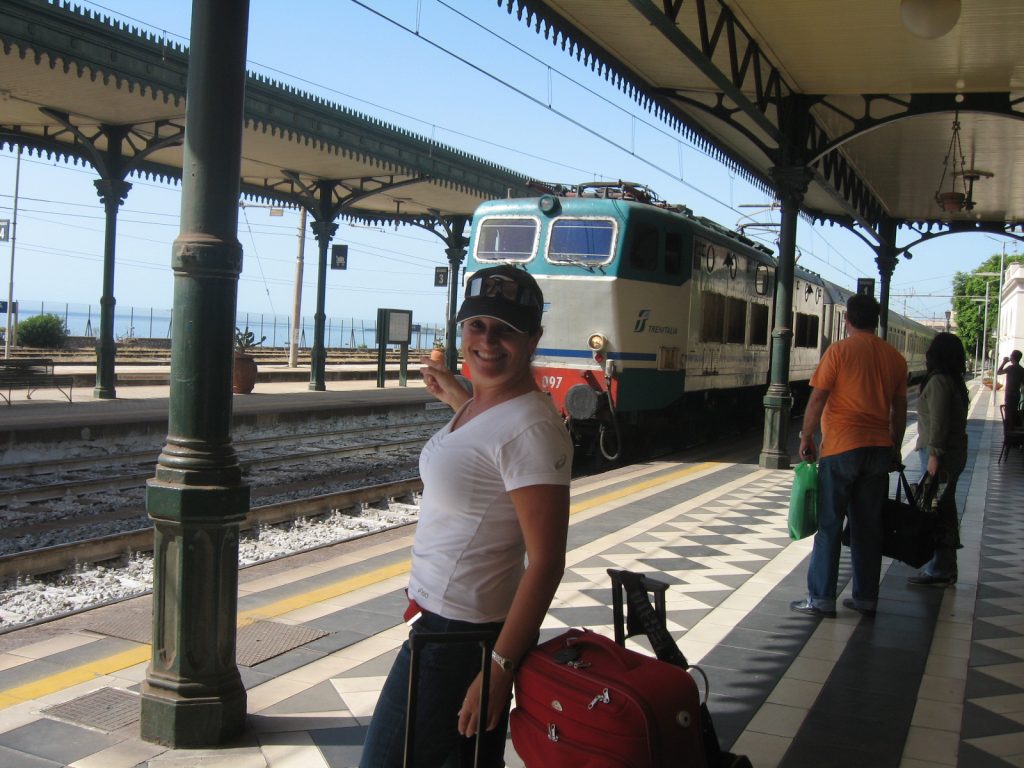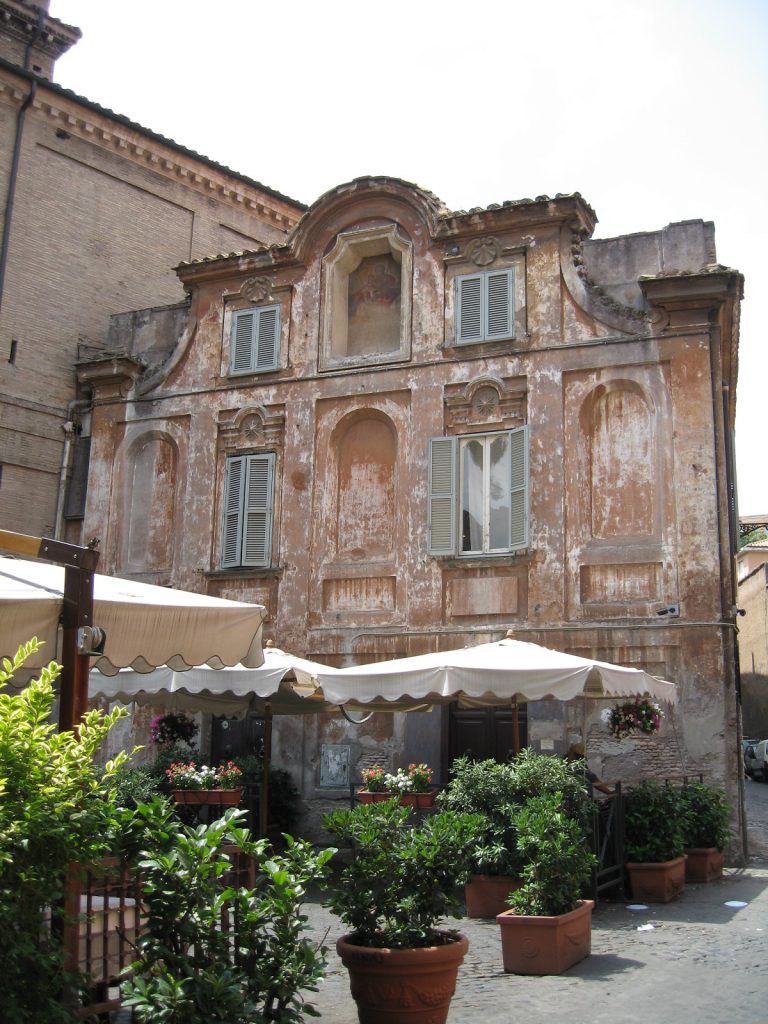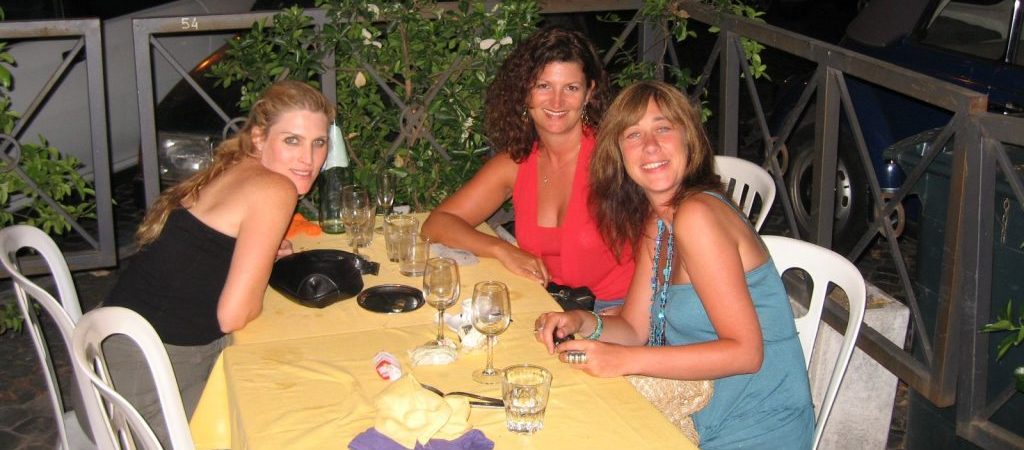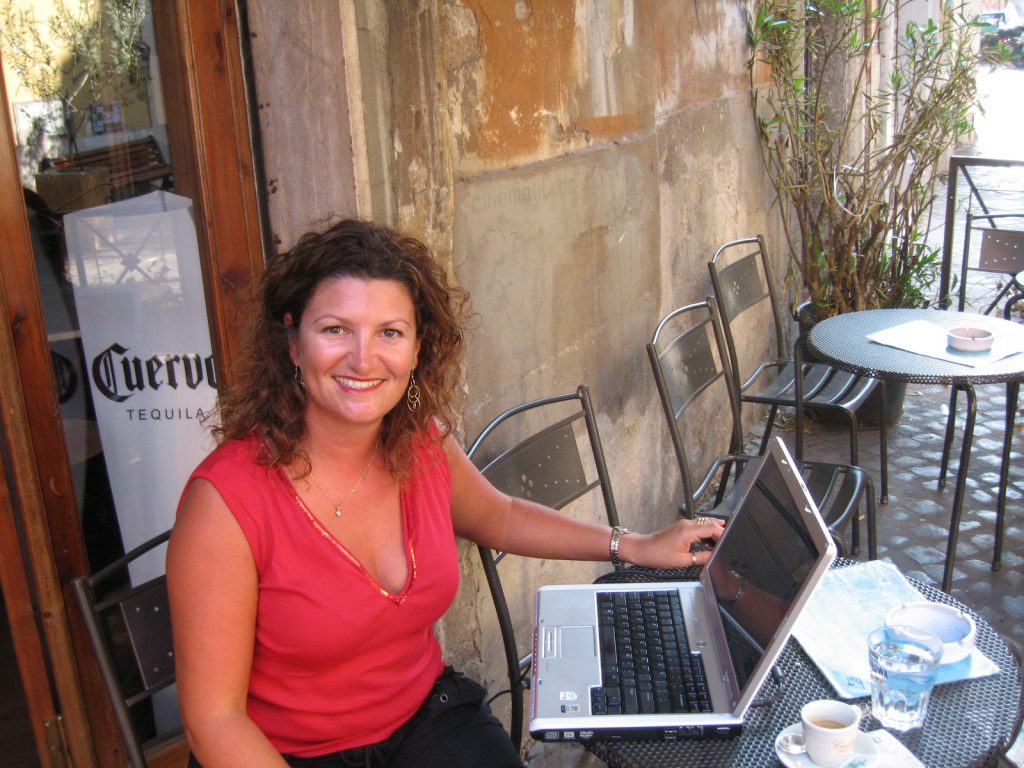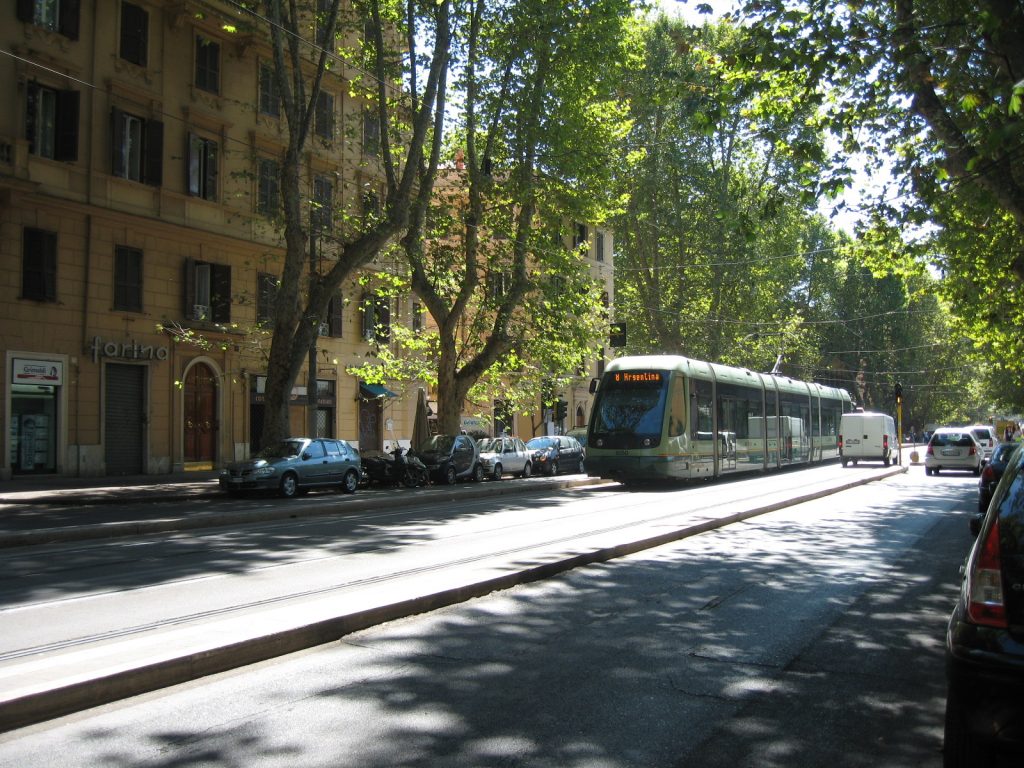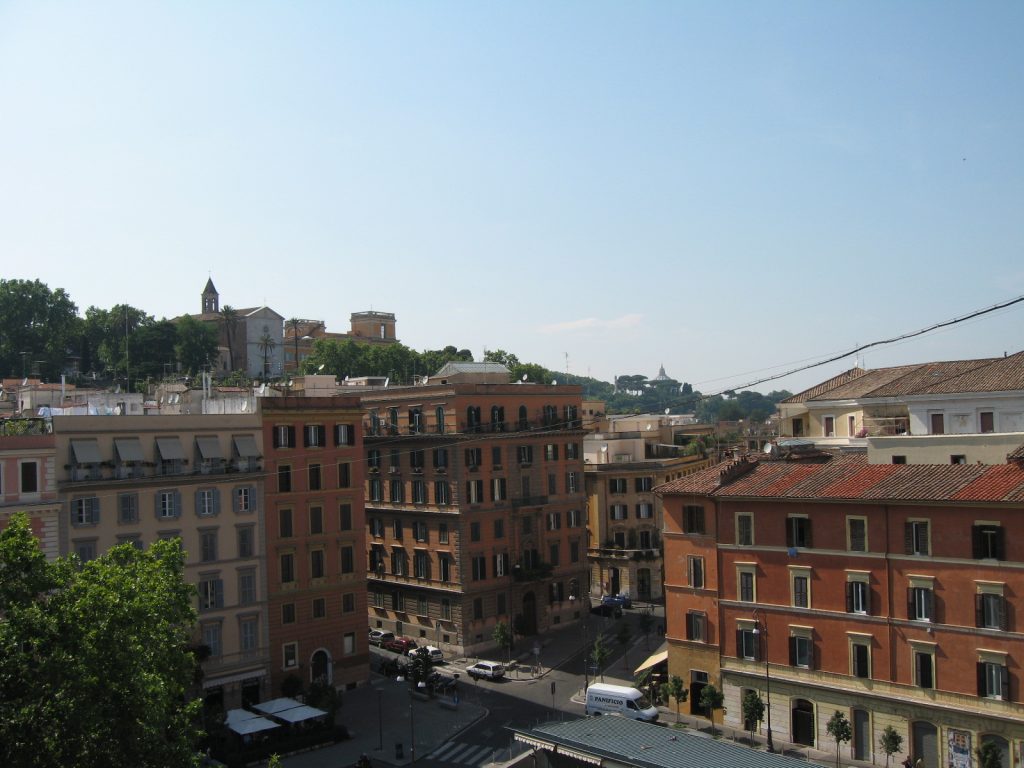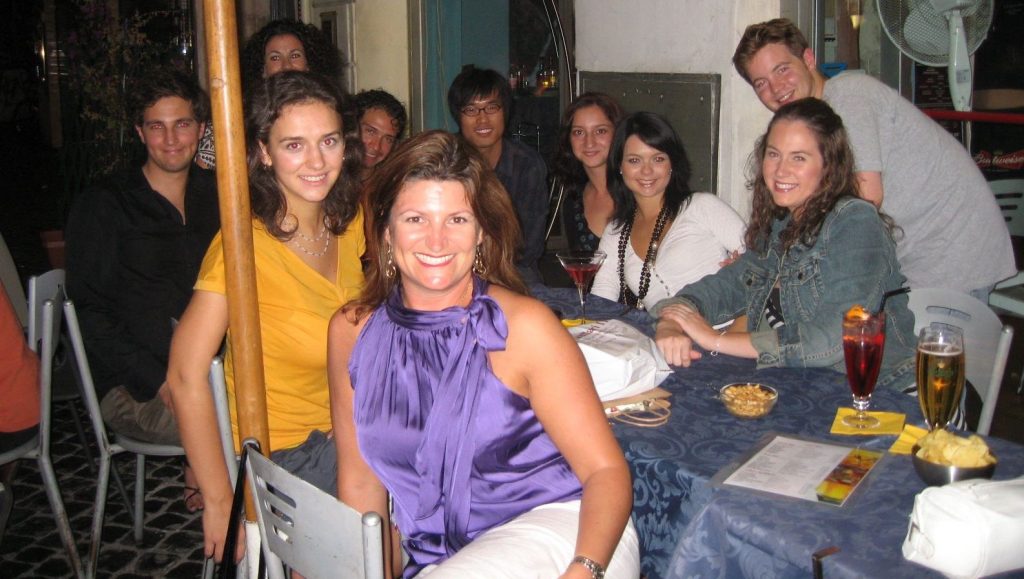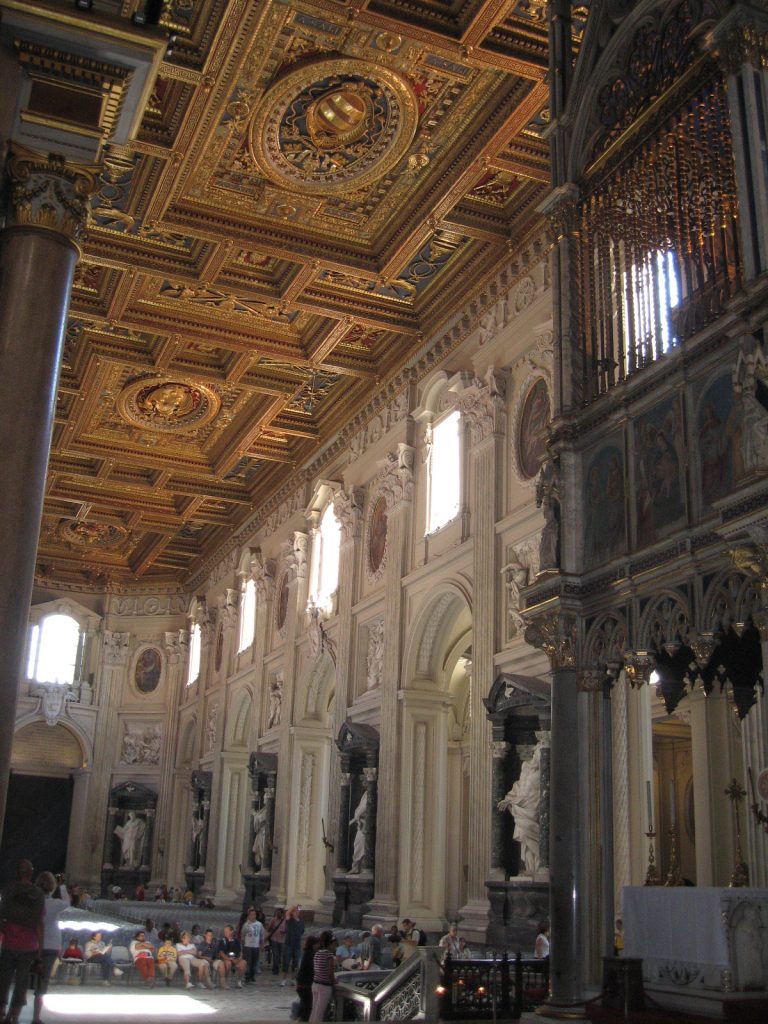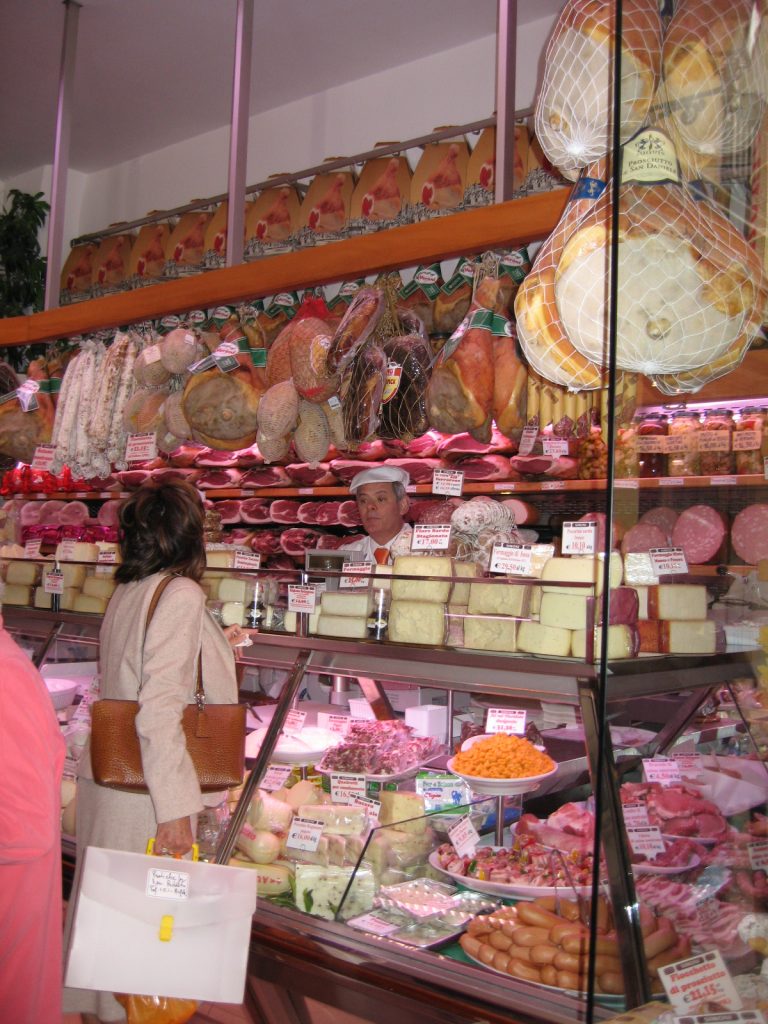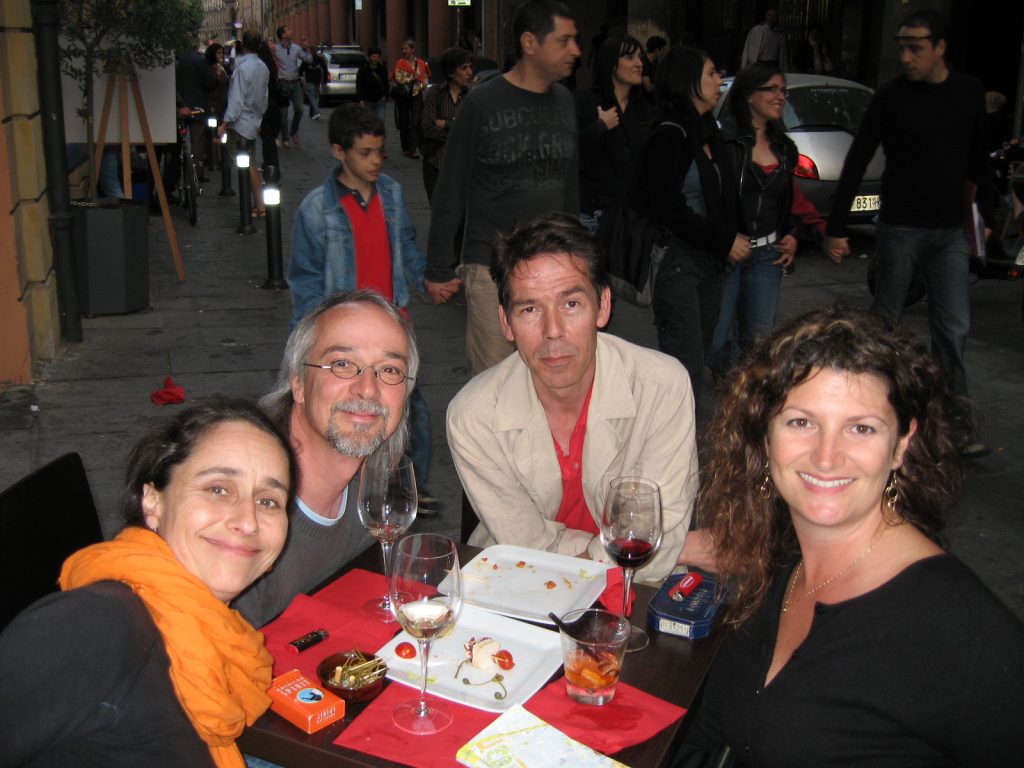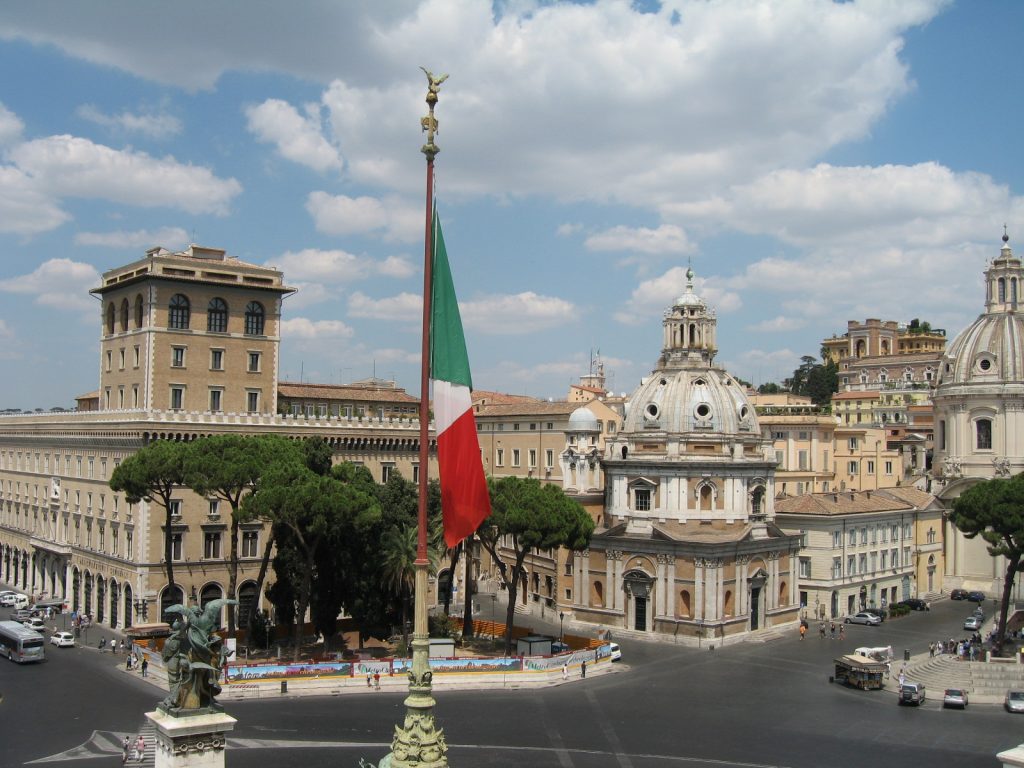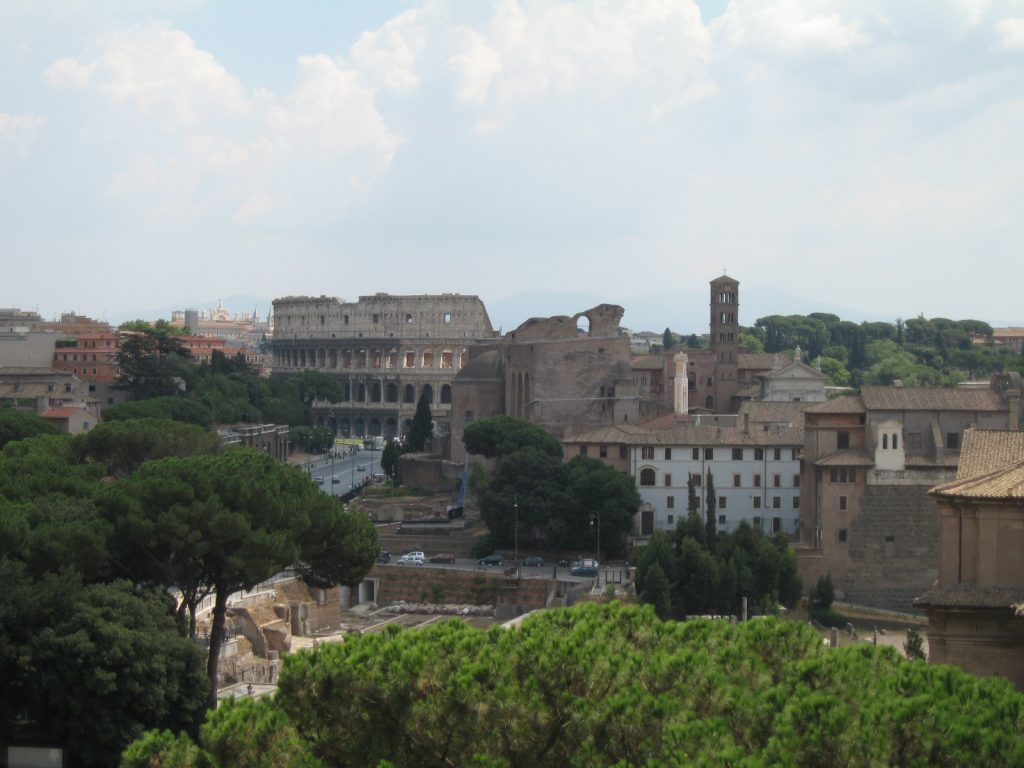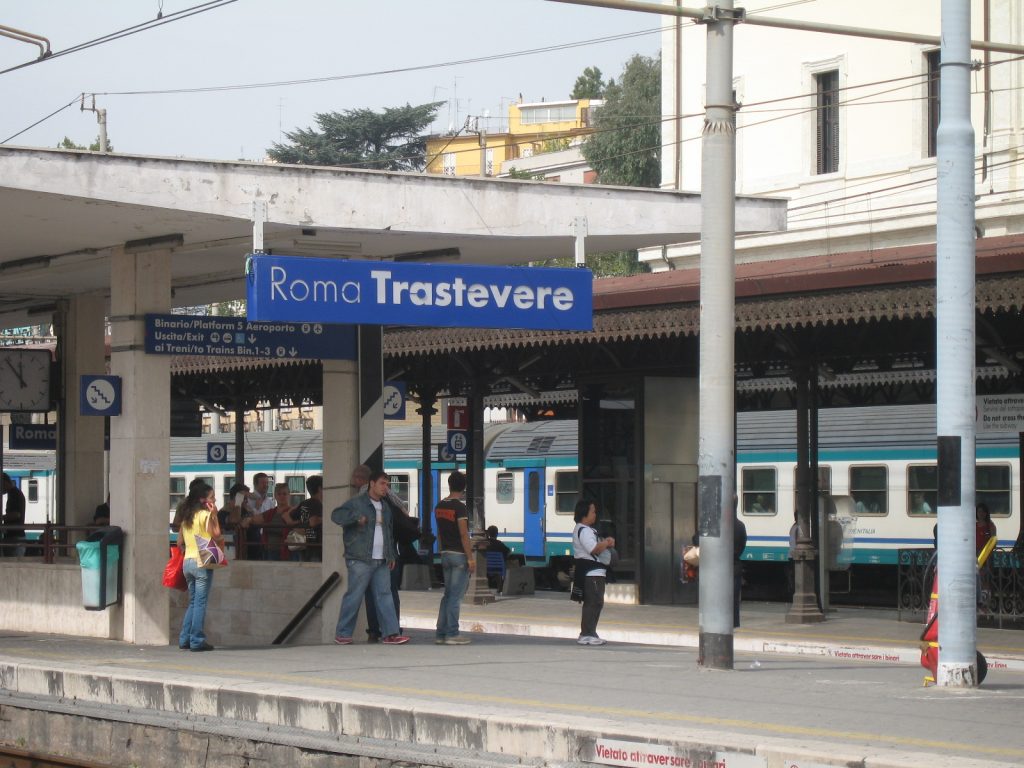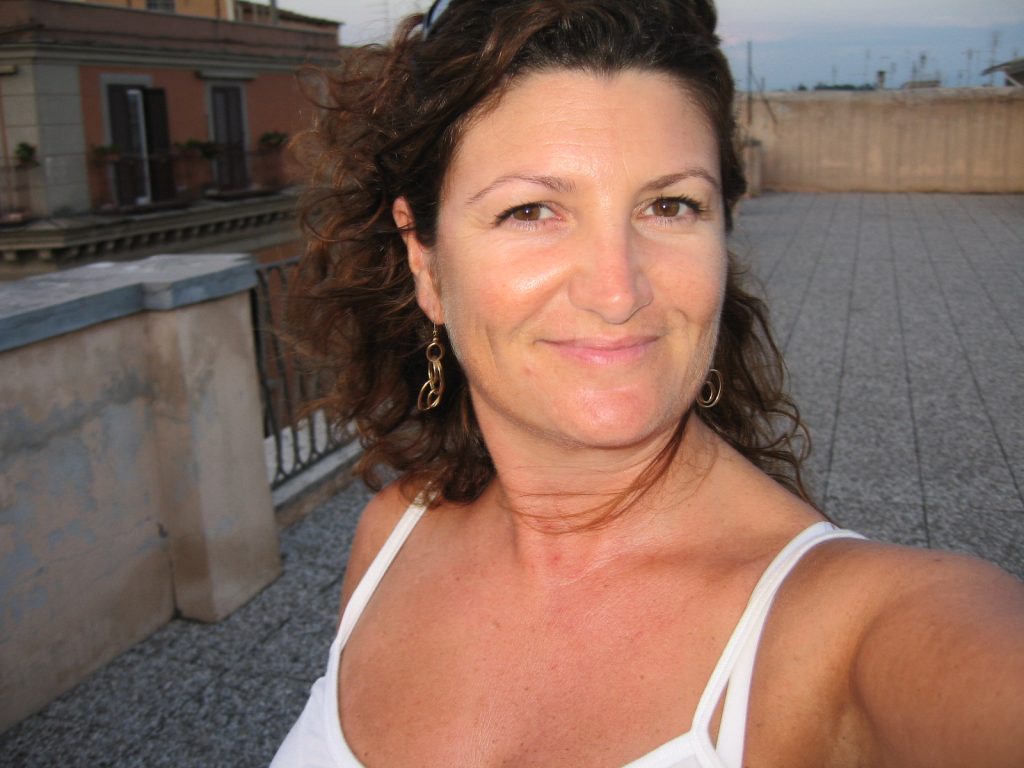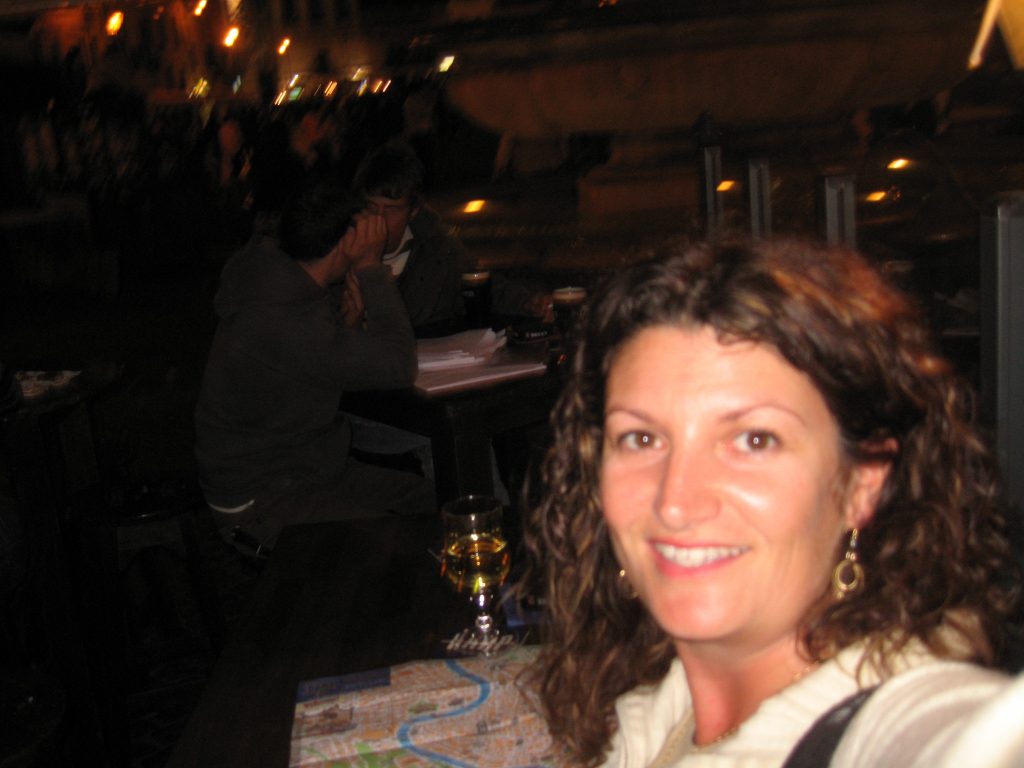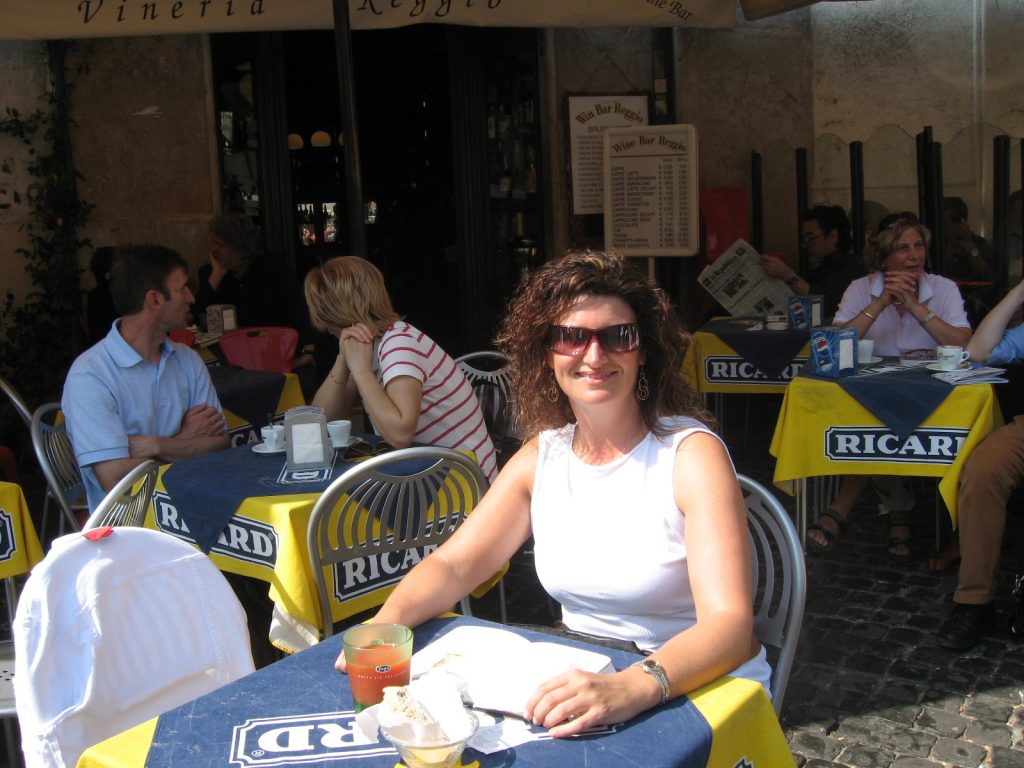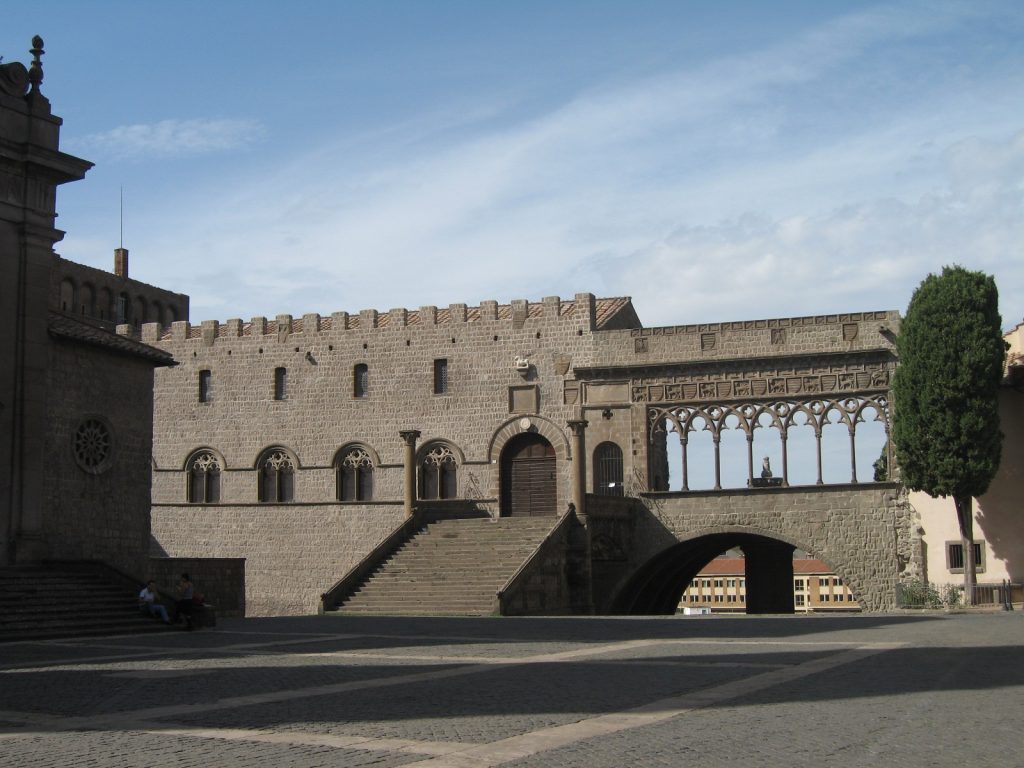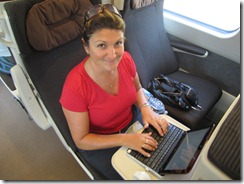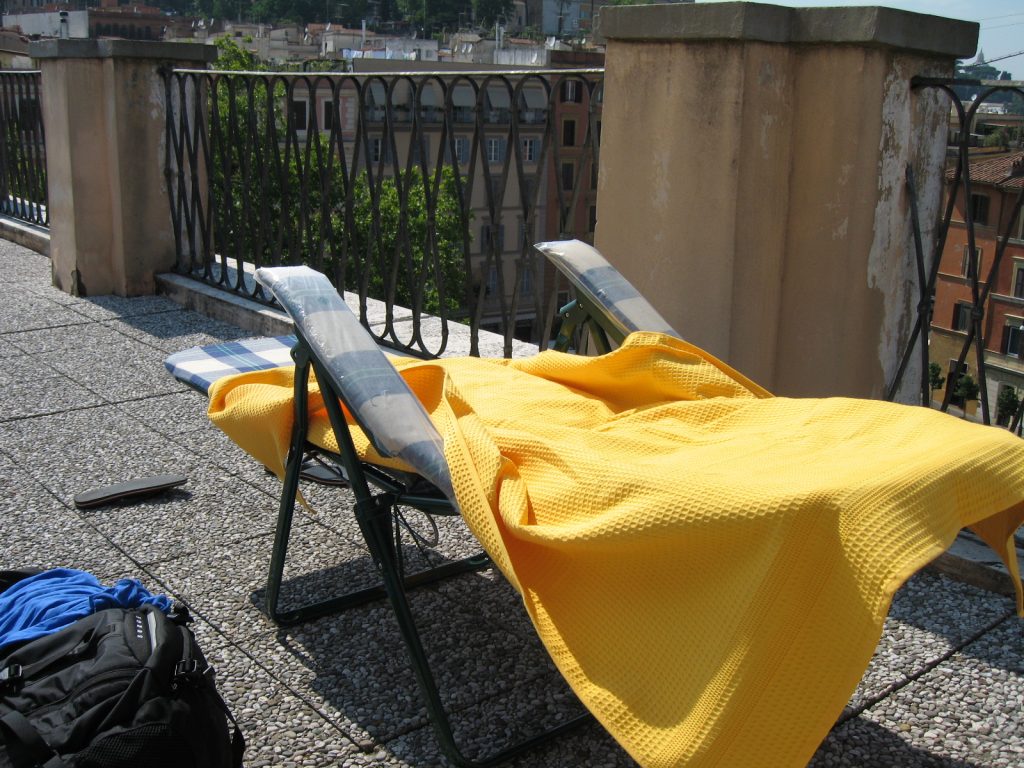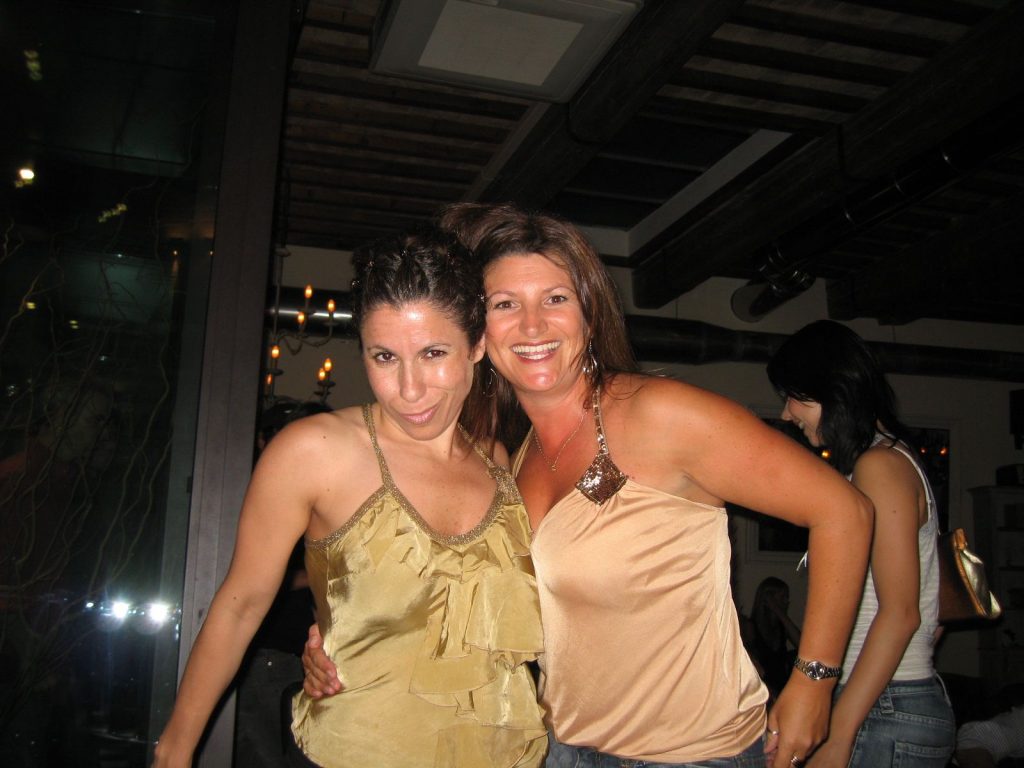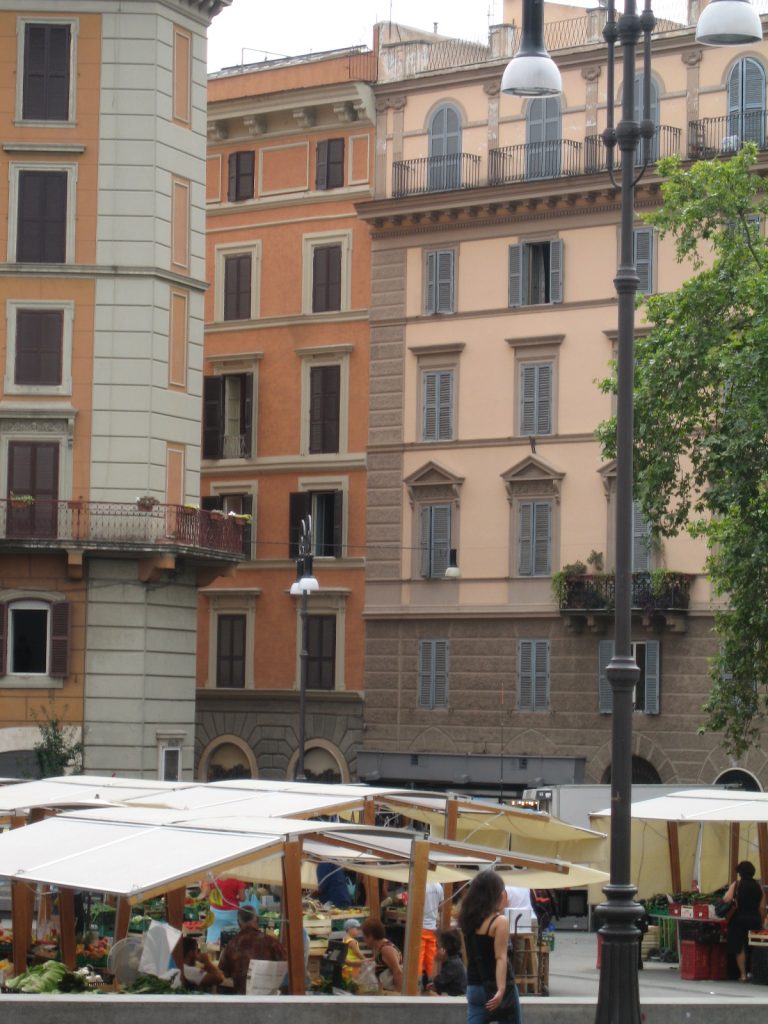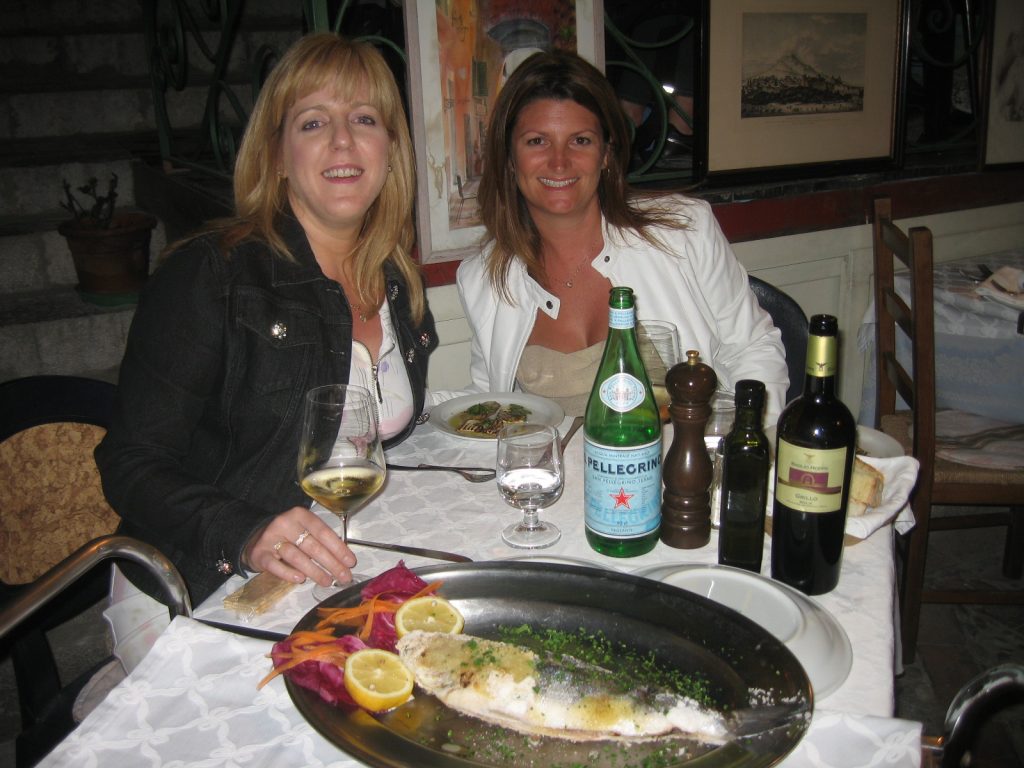I came across this article I’d written some time ago, La Bella Vita, that never made it as a published story. It’s from 2007, about realising my dream to live in Rome and thought you might like to read it. My experience happened before Eat, Pray, Love was published, and in fact, I started writing a book much like said-best-seller while I was there…I should’ve finished it!
Grab un cappuccino and settle in xx
La Bella Vita
Where post offices are banks, where tobacconist sells postage supplies and dramatic chaos is the norm
Someone visits Italy. They return home only to bore their friends recounting stories of a magical time, how good the food tasted, the delicious wine they drank for just five Euro per bottle, the mesmerising history, the rolling countryside, the azure sea, how friendly and animated the locals were and how the experience has changed them. Their stories usually end with how much they love Italy, how they’d love to return, buy a villa and spend each summer in Tuscany / Umbria / Amalfi Coast / Puglia / Sicily. It happens so often it’s become cliché.
After my first trip to the Motherland in my early 20s, the country where my parents were born, I too became one of those people, for about eleven years in fact. I visited Italy multiple times in those eleven years and each time I felt a little more Italian, like I belonged there. The notion of living life in Italy grew stronger after each trip. I would breathe relief with a feeling of ‘I’m home’ every time the plane touched down, and as it lifted off the tarmac on departure, tears would involuntarily run down my cheeks. My soul wanted to be in Italy. Whimsically I’d dream that one day I would live there, one day.
It took a pretty big and emotional relationship break up in my mid-30s to decide to stop dreaming and starting living. It was a typical ‘girl-gets-heartbroken’ story, but for me there was only one remedy. Italy.
I put my life in Perth on hold. I was granted a seven-month sabbatical and I left for Italia, for la bella vita. My plan: find a job, a place to live, become a Roman and stay forever.
Despite my trip not getting off to the best start – I was fleeced $500 at the airport for excess luggage – I left full of fantasies of what my new life was about to become. I had visions of taking la passiagiata, a leisurely stroll in the piazza every evening before a late dinner with new good-looking friends. I’d dream of wearing stylish clothes, perhaps a white linen suit with tan shoes, wandering the ancient city marvelling at the art and architecture.
My taste buds were anticipating the fruit-packed flavour of a daily gelato and the punch of ruby red tomatoes that taste like tomatoes should. I couldn’t wait to put my broken Italian into practice, to interact with a handsome local barista each morning before dipping my brioche into my lukewarm cappuccino. I was busting at the seams to fully immerse myself into daily life in Rome, a city that first frightened me with frenetic traffic but now excited me with the busy activity of a proper major capital. One never knows what to expect in Rome, and that’s what I love about it, daily surprises like seeing a well-suited middle-aged man cycling one-handed whilst chatting on his mobile to mamma explaining what he ate, or witnessing a nonna scolding a grandchild for not wanting to eat anything more.
Moving to Rome
Once my decision to live in Rome was made, the universe aligned. I picked up a two-week contract with an international event that started as soon as I landed. Perhaps it would set me up for longer-term work? Optimistic, I felt as if I was ahead of the game. Winning at life in Italy.

Working at Rally d`Italia Sardegna with Claudio Bortoletto who could be a relative, not sure – that’s another story…
After my contract ended, my supervisor let me stay at her beautiful apartment in central Rome for a couple of weeks in exchange for helping her improve her English. It was like living in the pages of Vogue Italia. Not able to freeload forever, I eventually found a room in an apartment in the uber-hip neighbourhood Trastevere, just over the Tiber River, sharing with an Australian girl who’d lived in Rome for eight years. She didn’t seem psychotic when I met her, and it was comforting to be able to speak English with a native. The room was so cheap, probably because it had a curtain instead of a wall to separate it from the living room. A bit like being a student again. It was in a great location, cheaper than a hostel and I didn’t need to sign a contract.
Working in Rome
In another universe-aligning moment, the American who moved out of my new room told me about a cash job available teaching English. I applied, was given an interview, the type of interview we refer to in Australia as ‘a grilling’, and hurrah! I got the job. It only took me an hour by bus to get to work, and I had short shifts of just three hours that paid ten Euro per hour. It was hardly a career move, but it was a start.
My favourite part of the job was Friday’s lessons: conversation. The rest of the week consisted of teaching a repetition method the school adopted, following textbooks that were decades old and subsequently teaching words that were no longer used in every day English. It felt fraudulent to teach these students how to be parrots rather than how to understand. The repetition method also consisted of using a non-stop assertive loud voice, constantly demanding they repeat what I say with no pause for explanation, questions, or discussion – hence my love for Fridays. My head would be thumping after every non-Friday shift.
I’d been working for two weeks when July rolled around. It felt like someone had hit an ‘on’ switch in Rome. Every single day saw temperatures reach over 30 degrees with super high humidity – it felt like I was living in an open-air concrete sauna, constantly sweating. Spending two hours per day travelling on crowded buses without air-conditioning suddenly became unbearable. For ten Euro per hour, in the words of supermodel Naomi Campbell that I echoed, “I’m not getting out of bed for that”. It was ruining my la bella vita. So I quit.
I had my days to myself and I focussed on finding a proper job. With less than perfect Italian language skills, my choices were limited. Still, I remained hopeful and steeled my resolve to make my new life work.
Becoming official
I had an Italian passport, but I needed a Codice Fiscale, a tax-file number, to be able to work. There wasn’t a facility to apply online, so I went into the Italian Government office and took a ticket. I sat in a vinyl chair and waited. And waited. In those 209 minutes I tried to find amusement watching irate customers wave their arms about as their voices rose over the counter. I took note of everyone’s shoes; most sported American Converse or Nike trainers, the only exception being the over 60s.
When my number was called, I explained my mission to the official. He gave me a form and told me to fill it out and come back with identification. I protested, I had my passport with me, I’m here, now, ready, pronto. I tried to tell him I’d fill out the form right away. My dreams of la bella vita did not include sitting in a stinking boring waiting room for another day. Arguing was futile, and I didn’t have the vocabulary to argue in Italian with any effect. He buzzed in the next number and I was shooed away.
It took two full days of my life to get my Codice Fiscale. When it was finally issued, I was unceremoniously given an A4 sheet of paper with my number on it and told to keep it safe.
Next on my ‘become a Roman’ to-do list was to open a bank account. A local had told me that the Poste Italia, the post office, was the best bank in Italy. Go figure. My ankles worked to stay upright walking along Rome’s ancient and uneven cobbled streets until I reached the 15th Century palace that housed a branch of Poste Italia. I look a number and wait for it to be called. After an hour or so, I was ushered into an office. On the other side of the desk sat a smart looking but casually dressed middle-aged woman, her specs balancing on the end of her nose, a computer perched on the corner of her desk, and behind her, a wall that had been converted to a bookcase that was jammed with files. She proceeded to get a form, a sheet of carbon, and a duplicate form that she placed on top. Carbon. This was 2007 not 1967. She passed me a pen, she asked me to fill out the carbonated form. In my best, most polite Italian, I asked, “A form? Why not just enter it straight into the computer?”
She sighed, pointed to the files behind her, and said that it’s the way they did things. Manually. Italians have always been suspicious of the online world, one reason why eBay has never done well in Italy. Plus, eBay relies on postage – I’ll get to that in a moment.
It took two weeks to open a bank account, and two more weeks to receive my pin number and cards.
Job hunting
Whilst waiting to become Poste Italia’s newest customer, my job search continued. I would take my laptop and a fold-up chair up to the roof top terrace of my apartment building and walk around until I could find an unsecured Wi-Fi signal. The roof top was my secret Utopia. The distant umbrella pine tree-tops seemed nearer. The buzz of Vespas and other motorini was lessened, and I had the terrace to myself, only ever seeing a neighbour who would waste no time hanging out their washing before scuttling downstairs. It was also a way to escape the confines of the apartment and my neurotic Australian flatmate who yabbered about Gianni calling her fifteen times a day or not calling her at all, which all seemed to revolve around him wanting sex. She wanted advice. My healing-heart was in no state to be drawn into another person’s messed up affairs.
The roof terrace had the best view of Trastevere and of Italian life below. On Friday mornings, I would watch the activity in the market in the piazza, of stalls selling fruit and vegetables, loud lycra clothes and cheap luggage. Other mornings I’d watch mothers walking their children to the nearby school, politely smiling and nodding to those they knew without breaking stride. Students with colourful backpacks, ripped jeans, and converse shoes gathering for a morning gossip, men dressed in orange trousers with navy or beige sports jackets and designer specs would walk purposefully to their destination, or stand with one foot up on a bench as they talked loudly on their mobile phone.
Italians love their mobile phones. At that time, Italy was the highest consumer of mobile phone devices per capita in the world. On average, each Italian owned 1.75 mobile phones. Children included. In any given café, the people on the next table would line up two or three mobile phones each – personal, work, and sometimes a secret phone that their wife / husband / partner didn’t know about.
Learning about Italians in Italy
I learnt that 75 per cent of men and 62 per cent of women cheat on their husbands in Italy. This interesting but somewhat disturbing stat was brought to my attention by Grazia magazine. That would explain the secret mobile phone. I owe a lot to the weekly women’s publication – their insight into Italian life and behaviour helped me with my Italian language skills. Every Thursday I would pick up a new edition and read it from cover to cover in a café with my Italian-English dictionary as company. I looked up words I didn’t know and contemplated what I was learning about real Italian culture, like the cheating stat, as opposed to the holiday version of Italian culture that tourists see.
Despite being shocked at how every-day infidelity seemed to be, I was just as shocked at the Italian fashion. Where had the smartly dressed Italians with chic handbags and stylish leather shoes gone? American fashion of jeans and sneakers was on trend. Casual, almost dishevelled reigned, rather than the stylish fashion I remembered, where even the ugly people looked good in Italy.
The Post Office
To match my new life in Rome, I needed new clothes, so I shopped for new things while waiting for a job. I’d also bought presents for family in Australia and headed to the post office to send them home. After taking a ticket, I waited 52 minutes for my number to be called. At the counter I was told that I needed a box to put the items in before I could send them. “Well, of course,” I said. “Could I buy a box?” That question was met with a stern, “No.” I was instructed to go to the Tabacci (tobacconist) to buy a parcel box and return.
I followed those instructions and returned a few days later. The cost to send my package to Australia was 85 Euro. The contents inside were probably only worth about half that. I asked if that was by sea or by air. I was told that only most expensive option was available, sending it by air, because they had run out of the forms required to send the parcel by sea. “Could you possibly print off another form so I could send it by sea?” Another stern, “No.” Frustrated, I had to walk fifteen minutes in the searing summer heat to another post office where there might be sea parcel forms. I quickly learnt that I had to allocate half a day to post a parcel to allow for eventualities such as running out of forms, buying envelopes or boxes elsewhere and other such Italian bureaucratic idiosyncrasies.
Even if it feels like an ancient cobblestoned-oven in summer, there are benefits to walking around Rome. Around every corner, in just about every piazza, you’ll find a church that’s one thousand years old or more and breath-takingly impressive. When the pavement feels like it could crisp-fry bacon, walking into a cool church is a relief worth thanking God for. Plus it’s free, and usually filled with incredible art. But mostly, it was a great way to give my sweat glands some respite.
One day I stepped out of one such church into a pedestrian piazza and thought my ears were going to bleed, her shrieks were piercing. A hysterical woman was yelling and wildly waving her arms around and there was a carabinieri police car parked out of the front of a store. I asked the newspaper seller what the commotion was about and he said that the police car was parked in front of her store, making it difficult for customers to walk in. Nothing dangerous, no armed hold up, no theft, no hostages. The drama that ensued from a parked police car had nothing to do with policing at all. I burst out laughing, hardly able to believe the woman’s completely over the top reaction. The newspaper seller seemed confused by my reaction.
As the job search continued, my reality of la bella vita sank in. Daily life in Rome dished out moments of hilarity of such proportions one couldn’t possibly script, yet it was plagued with frustrations of systems that are designed to be difficult. I hadn’t even delved into the world of utilities, which every Italian can tell you story about.
The romantic notion of shopping at markets, daily interactions with Italians, breathtaking beauty, being surrounded by significant history, a new life in an ancient city evaporated as quickly as a spilled spritz on a cobblestone in summer.
Finding a career job in Rome in summer proved fruitless. No one was hiring. Every worker in every workplace seemed to be hanging on by a thread, watching the clock for August to arrive, the month when the entire population enjoyed summer vacation.
My sabbatical period was coming to a close. I had to decide if I would return to life in Perth with its glorious beaches, clean air, obedient traffic, modern banks and practical post offices. Or stay in Rome, in a city that dealt unexpected rewards but felt like a daily fight to survive. My soul had yearned for Italy for so long and I didn’t have that same deep-seeded ache for Perth. My experience during the previous six months hadn’t diminished my love for Italia, but it had made me understand it better.
I was living in the coolest area of Rome, albeit in student conditions with a painful flat mate. To afford to stay in Rome and rent a room that had four walls and a window would require a salary that didn’t match my imperfect, but much improved, Italian language skills. In Perth everything worked. I had a well-paying job waiting, I could send a parcel with confidence and I could sort out most bureaucratic issues online or over the phone.
Taking stock, I viewed life from the roof top in Trastevere and breathed deeply, the slight taste of exhaust fumes coating the back of my throat. My romantic, holiday version of la bella vita seemed a world away from reality. With that, I decided to continue my love affair with Italy. To always visit Italy and enjoy the romantic offerings of the holiday version of la bella vita, but to live every day in functional, pretty Perth. With that decision, the cliché had been lived out and I took comfort knowing that I would never die wondering ‘what if….’. My soul had made peace.
Here’s a gallery of some photos from my time in Rome in 2007. I’m pretty impressed that I was taking selfies on a digital camera before selfies were even a thing!
Thanks for reading xx
- Selfie game strong back in 2007 before selfies were even a thing
- Selfie using a digital camera, 2007
- Selfie on my first night in Rome in 2007
- Coffee on my first morning in Rome ready for a Roman life, 2007
- Blogging on a train in Italy, 2007
- My fold up sun lounge on the roof terrace, 2007
- My beautiful friend Cath who lived in Rome for years. She made living in Rome fun for me
- Trastevere
- Roman trees
- My gorgeous friend Donna visiting me in Rome

